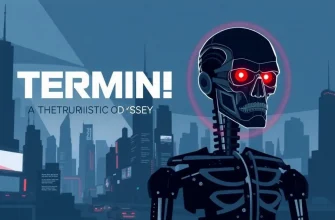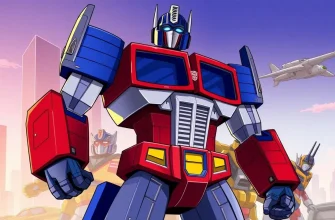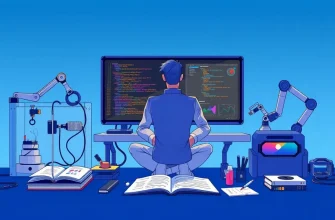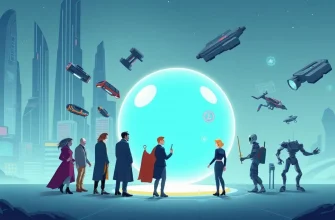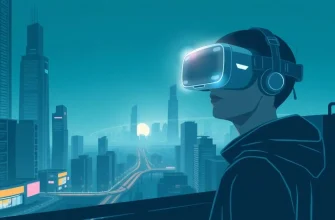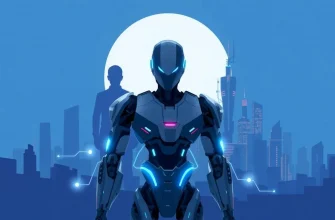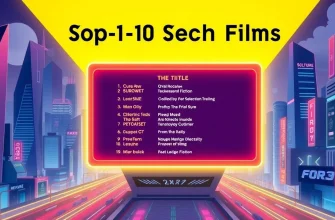In the realm of science fiction, few themes captivate audiences as much as the concept of robots that mirror human behavior and emotions. This curated list of 10 films delves into the intricate relationship between humans and their mechanical counterparts, exploring themes of identity, consciousness, and the ethical dilemmas that arise when artificial beings become indistinguishable from us. These films not only entertain but also provoke thought, making them a must-watch for anyone fascinated by the intersection of technology and humanity.
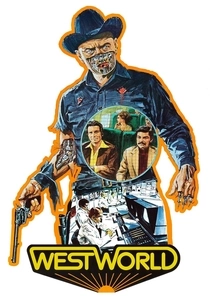
Westworld (1973)
Description: In a futuristic theme park, guests can live out their fantasies with robots, but when the robots start malfunctioning, the line between fantasy and reality blurs, leading to chaos.
Fact: This film was Michael Crichton's directorial debut, and it inspired the HBO series of the same name.
 Watch Now
Watch Now 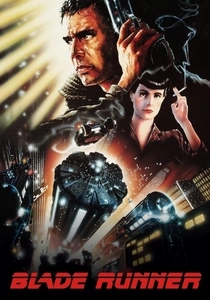
Blade Runner (1982)
Description: Set in a dystopian future, "Blade Runner" follows Rick Deckard, a 'blade runner', tasked with hunting down rogue bioengineered beings known as replicants. The film explores what it means to be human when artificial beings can think, feel, and even love.
Fact: The film's famous "Tears in Rain" monologue was improvised by Rutger Hauer. The original script had a much longer speech, but Hauer cut it down to what we see in the movie.
 Watch Now
Watch Now 
Ghost in the Shell (1995)
Description: In a cyberpunk future, Major Motoko Kusanagi, a cyborg, hunts a hacker known as the Puppet Master, exploring themes of identity, consciousness, and the merging of human and machine.
Fact: The film's visual style has influenced numerous sci-fi works, including "The Matrix."
 Watch Now
Watch Now 
Bicentennial Man (1999)
Description: Based on Isaac Asimov's story, this film follows Andrew, a robot who develops emotions and seeks to become human over two centuries, exploring themes of longevity, evolution, and the quest for humanity.
Fact: Robin Williams, who played Andrew, improvised many of his lines, adding depth to the character's journey.
 Watch Now
Watch Now 
A.I. Artificial Intelligence (2001)
Description: In a world where robots serve humanity, David, a childlike android, embarks on a quest to become a real boy to win back the love of his human mother. This film delves into themes of love, identity, and the desire for acceptance.
Fact: The film was originally conceived by Stanley Kubrick, but after his death, Steven Spielberg took over the project, blending Kubrick's vision with his own.
 Watch Now
Watch Now 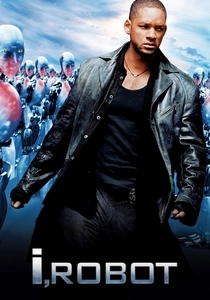
I, Robot (2004)
Description: In a future where robots are common, Detective Spooner investigates a murder that leads him to question the Three Laws of Robotics, exploring themes of trust, prejudice, and the potential for AI to evolve beyond its programming.
Fact: The film's plot diverges significantly from Asimov's original stories, focusing more on action and less on philosophical debates.
 Watch Now
Watch Now 
Ex Machina (2014)
Description: A programmer is invited by his CEO to administer the Turing test to an intelligent humanoid robot. The film raises questions about consciousness, manipulation, and the nature of intelligence.
Fact: The film was shot in a real house in Norway, which was designed specifically for the movie, giving it an authentic and isolated feel.
 Watch Now
Watch Now 
Chappie (2015)
Description: A robot with the ability to think and feel for itself is stolen and reprogrammed, leading to a unique journey of self-discovery and the exploration of what it means to be alive.
Fact: The film features the directorial debut of Neill Blomkamp, known for "District
 Watch Now
Watch Now 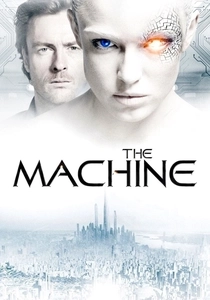
The Machine (2013)
Description: In a dystopian future, a scientist creates an AI with the ability to learn and feel emotions, leading to unexpected consequences as the AI seeks to understand its own existence.
Fact: The film was made with a relatively low budget but received praise for its thoughtful exploration of AI ethics.
 Watch Now
Watch Now 
The Stepford Wives (1975)
Description: In the seemingly perfect town of Stepford, the wives are eerily perfect, leading to a chilling discovery about their robotic nature and the control exerted over them.
Fact: The film has inspired numerous remakes and adaptations, exploring themes of conformity and the loss of individuality.
 30 Days Free
30 Days Free 

